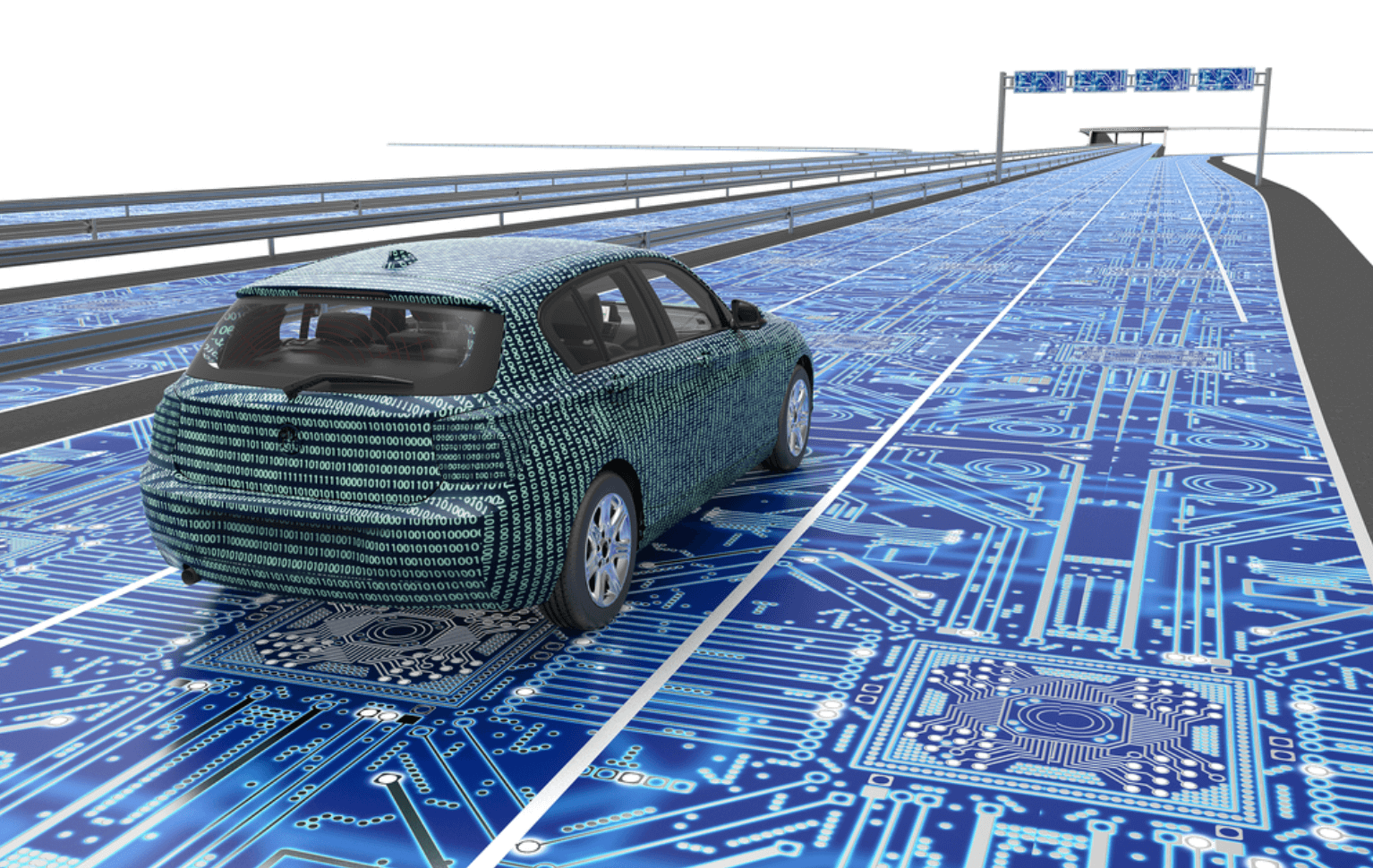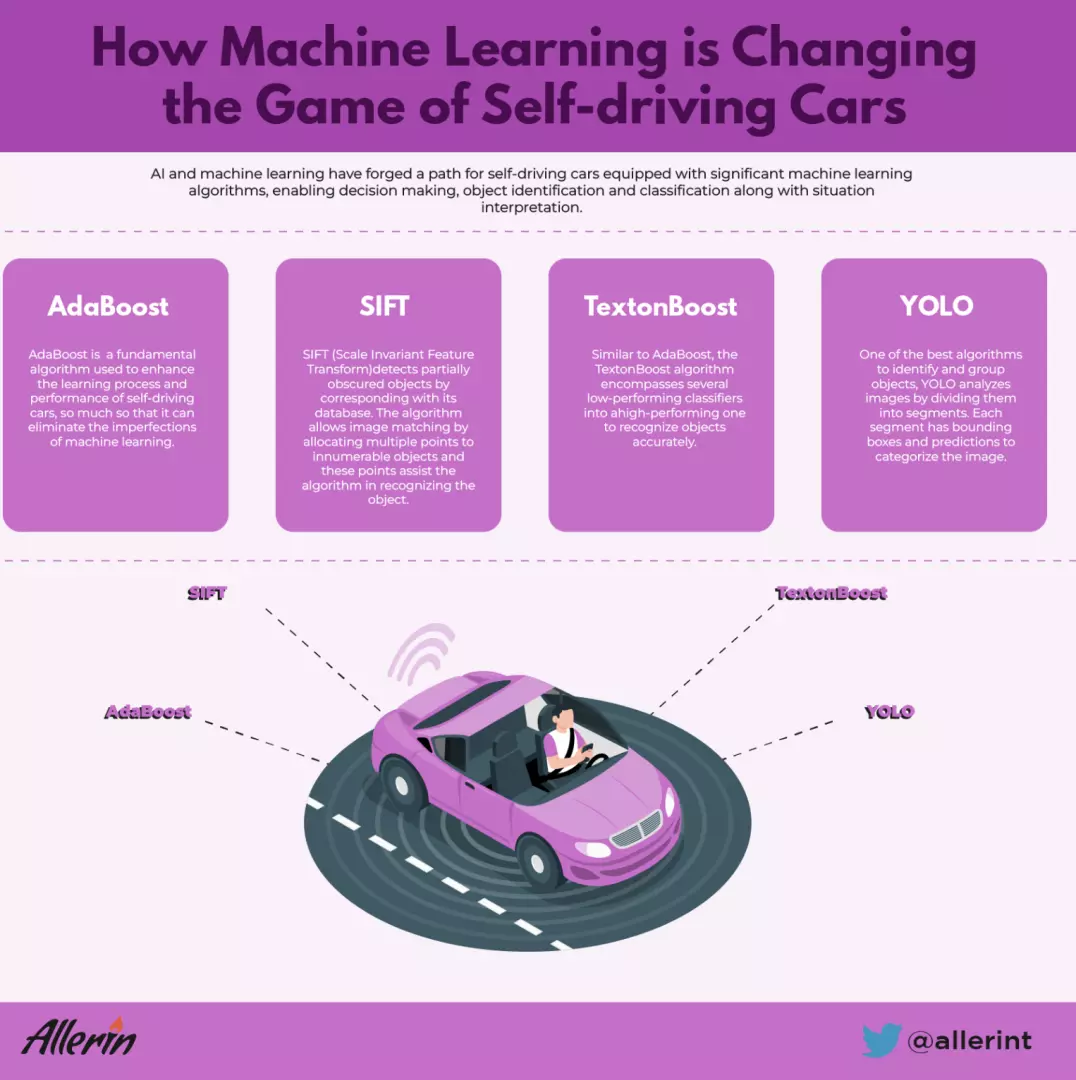Comments
- No comments found

Self-driving cars equipped with machine learning algorithms can make better decisions, identify & classify objects and interpret situations.
Humans have come a long way in implementing progressive technology in the daily functioning of the world and its integration is only growing. Artificial intelligence and its subset, machine learning, have been causing substantial ripples throughout the innovative times, so much that even self-driving cars are becoming the future. A handful of multinational companies like Tesla and Google have been initiating autonomous driving projects such as Waymo One, facilitating self-driving taxi services possible due to machine learning. Unfold its role in this innovation below.
Self-driving cars, also known as automated vehicles or robo-cars, are an ensemble that incorporates machine learning, integrating hardware and software for vehicular automation. The hardware of the cars constantly accumulates data from the surroundings while the software sorts this collected data, which is further deployed to machine learning algorithms. ML algorithm essentially learns to enhance its decision-making through the data collected from prior incidences and conceding on the best data-driven action. In simple terminologies, the ML algorithm increases its effectiveness with an increase in data.

Key Machine Learning Algorithms Used for Autonomous Driving
Machine learning in self-driving cars is a collaboration of several algorithms that contribute to the effective functioning of autonomous driving. AdaBoost
AdaBoost is a fundamental algorithm used to enhance the learning process and performance of self-driving cars, so much so that it can eliminate the imperfections of machine learning. It combines the outputs of various low-tier algorithms to integrate a more effective algorithm for successful predictions and decision-making for automotives. SIFT
SIFT (Scale Invariant Feature Transform) detects partially obscured objects by corresponding with its database. The algorithm allows image matching by allocating multiple points to innumerable objects, and these points assist the algorithm in recognizing the object. In essence, if a stationary vehicle is partially hidden behind a boulder, an autonomous vehicle scours its database through the points on the vehicle. TextonBoost
Similar to AdaBoost, the TextonBoost algorithm encompasses several low-performing classifiers into a high-performing one to recognize objects accurately. It uses the context, shape and appearance of the object and identifies it through its characteristics. YOLO
One of the best algorithms to identify and group objects, YOLO analyzes images by dividing them into segments. Each segment has bounding boxes and predictions to categorize the image.
We have only explored the tip of the iceberg with AI and ML technology, but self-driving cars are surely paving their way in the future.
Naveen is the Founder and CEO of Allerin, a software solutions provider that delivers innovative and agile solutions that enable to automate, inspire and impress. He is a seasoned professional with more than 20 years of experience, with extensive experience in customizing open source products for cost optimizations of large scale IT deployment. He is currently working on Internet of Things solutions with Big Data Analytics. Naveen completed his programming qualifications in various Indian institutes.
Leave your comments
Post comment as a guest